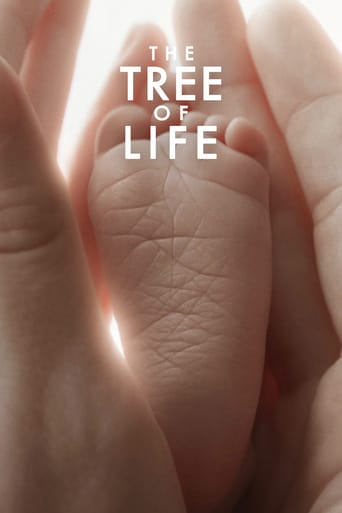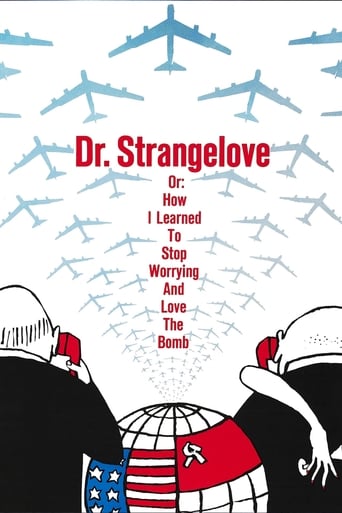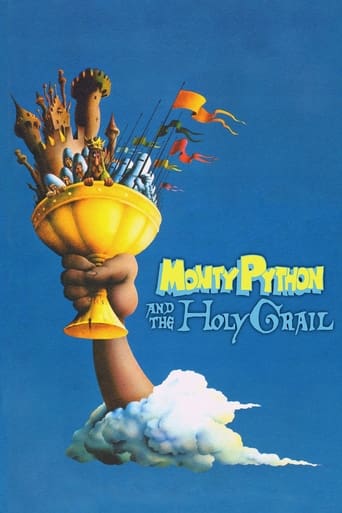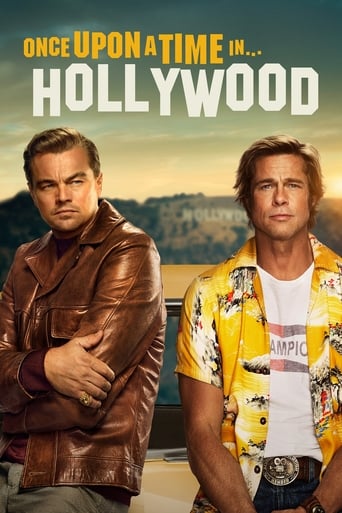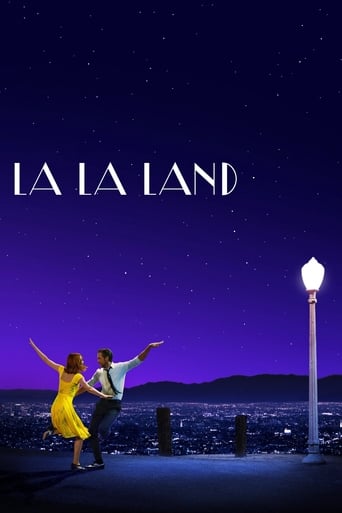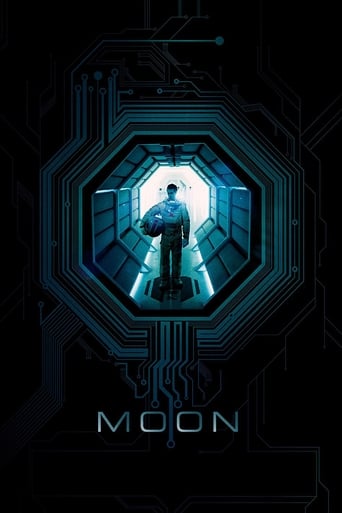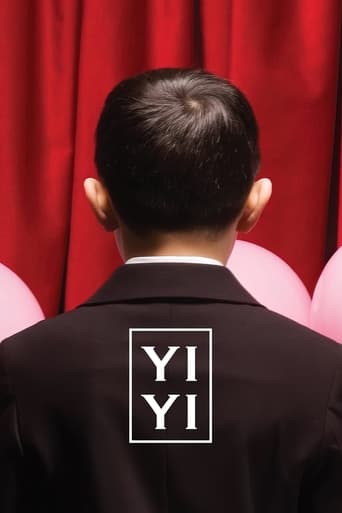


Yi Yi
Each member of a family in Taipei asks hard questions about life's meaning as they live through everyday quandaries. NJ is morose: his brother owes him money, his mother is in a coma, his wife suffers a spiritual crisis when she finds her life a blank and his business partners make bad decisions.
-
- Cast:
- Wu Nien-jen , Issey Ogata , Elaine Jin , Kelly Lee , Jonathan Chang , Hsi-Sheng Chen , Su-Yun Ko


Similar titles
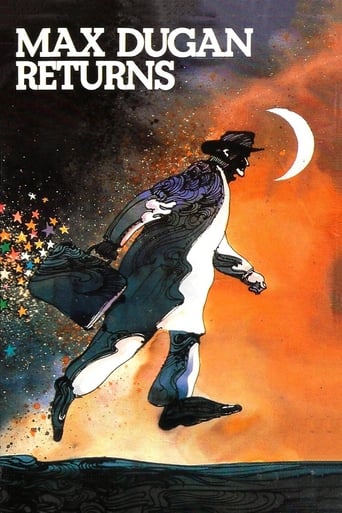


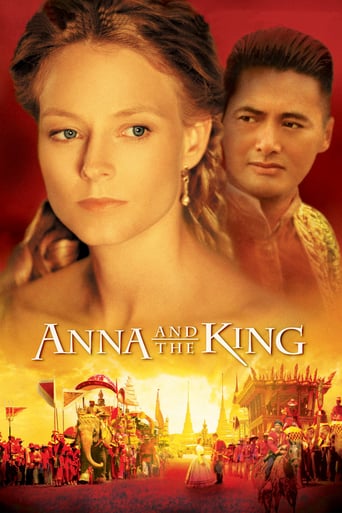

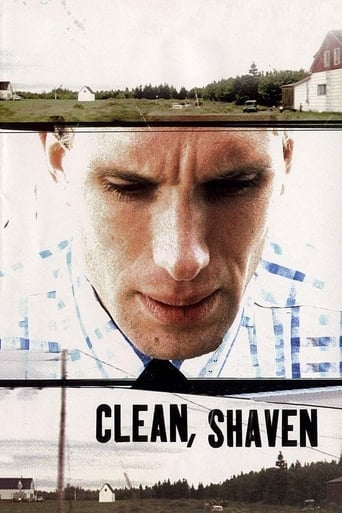
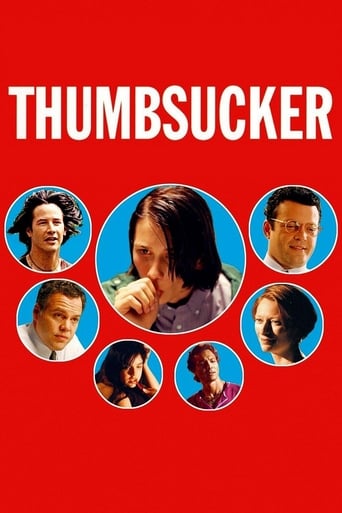

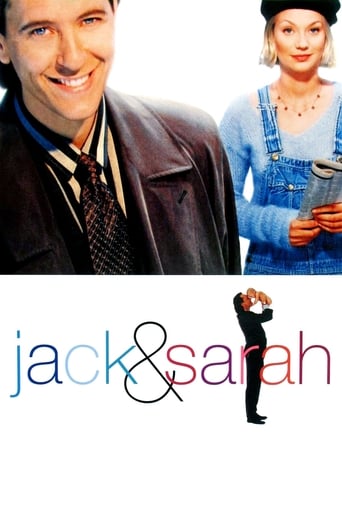

Reviews
Very very predictable, including the post credit scene !!!
Let me be very fair here, this is not the best movie in my opinion. But, this movie is fun, it has purpose and is very enjoyable to watch.
Exactly the movie you think it is, but not the movie you want it to be.
It's the kind of movie you'll want to see a second time with someone who hasn't seen it yet, to remember what it was like to watch it for the first time.
Why are we afraid of the first time? Every day in life is a first time. Every morning is new. We never live the same day twice. We're never afraid of getting up every morning. Why? - Ota NJ is a middle-class father living an ordinary life in his middle-class apartment in Taiwan. he must confront the reasons why he abandoned his ex-lover 30 years ago, while he also struggle to retain his sense of thinking that work is still important. his wife, Min-Min, having trouble in her mind, that she feels an emptiness in her life when she must take care her old mother who suffered a coma. her young daughter, Ting-Ting, feeling guilty about the illness of her old grandma, she cannot sleep every night thinking that she's the one who responsible for it. Yang-Yang, NJ's young son, the boy who always teased by a bunch of young girls at his school, asking an unanswered question: "Daddy, you can't see what I see and I can't see what you see. So how can I know what you see?". I remember the first time i watched a drama about how everyday life was portrayed so beautifully like Magnolia and American Beauty. i was so amazed by its storyline, screenplay, editing and the chemistry between all cast. This movie was way more beautiful in every sector. The cast was superbly drawn, the dialogues were eloquent and purely delivers us a fantastic conversation, the directing was mind blowing, the script was brilliant as well as the screenplay was flawlessly flowing naturally. There's also so many perfectly taken shots and the editing was very good.The very essence of this beautiful masterpiece, from my point of view, is how Edward Yang as a writer and director want us to see, there is a second side to every story, and the perception of that side promises new awakenings. Why is the world so different from what we thought it was? Now that you're awake and see it again... has it changed at all? Now I've closed my eyes... the world I see... is so beautiful - Ting-Ting
The movie is a reflection of the lives of many, mainly a man named NJ. Its the nonchalant, uneventful, lost love and regrets filled life of NJ who doesn't do anything heroic or Hollywood but does what most of us would do - live life as it goes on. There is a heavy dose of reality injected into every character's dreams. The coulda-woulda that never becomes real. The teenage love that goes horribly wrong, the single adventurous mother who permanently changes the lives of the children who face the consequences for her lifestyle. Everything about humanity and human life is in this movie in all its normality. Its a mirror to what really goes on in most of our lives - the utter contradiction of dreams, fantasies, everlasting love, etc.
"People adore fences, but Nature doesn't give a hoot. Solitude is a human presumption." - Barbara Kingslover Like all of Edward Yang's pictures, "Yi Yi" is set in Taipei, the capital of Taiwan. Framed by a wedding and a funeral, and so union and separation, the film charts the trials and tribulations of at least four generations of Taiwanese men, women and children. Translated into English, Yang's title means "one one", or "each one".The film itself is preoccupied with "ones". Though Yang immerses us in a tapestry of relationships, each of his characters remain irrevocably alone. There's a dying grandmother, two schoolgirls, several men, women, husbands, wives, co-workers, past lovers...a smörgåsbord of interpersonal but impersonal drama. Everyone's oblivious to everyone else, forever trapped in their own private boxes."We haven't yet surpassed fighting and killing games because we haven't fully understood ourselves," a character says. "Yi Yi" itself posits human suffering as a failure of both perception and self-reflexivity. Our characters don't know what they want, why they hurt, act, how others see them or why and how others feel. Rectifying this is a character called Yang Yang, a precious eight year old who delights in taking photographs of "hidden" and "invisible things", including the backs of the heads of others. "You can't see it," he says, "I'm helping you." It is through Yang Yang that Edward Yang develops the film's autobiographical subplot. He turns the film's eight year old into a miniature version of himself, a budding sage who explores the catacombs of Taiwan and stumbles upon profundities which everyone else ignores. "Can we only know half the truth?" the kid asks, and resolves to become a photographer, determined to push the limits of human perspective.More than Yang's previous films – most of which are essentially Antonioni with rice - "Yi Yi" portrays contemporary capitalism as alienating, isolating and conducive of depression. "I'm never happy," one character mourns. "How can we be happy when we don't love what we do?" comes the reply. The World Health Organisation itself estimates that depression will be the second largest contributor to global death/disease by 2020, but such rates in urban Japan and China are already exorbitantly high; the very conditions capitalism requires negatively impacts children and workers.But if Antonioni is noxious and suffocating, "Yi Yi" portrays a more beautiful form of alienation. Yang's film is filled with boxes, squares, human beings immaculately framed by walls, windows, doorways or lost in the aural cocoons afforded by headphones. Lovers meet under bridges, humans pass one another in hallways, brush anonymous shoulders in elevators or hang suspended above highways in their pressure-cooker apartments. Yang's urban spaces are harsh, but beautiful, with sprinkles of green and patches of warm blacks and red. With Yang, characters and environment seem inseparable. Often his static shots of places and spaces seem more interesting, and thrilling, than the human beings who mope before them. Elsewhere his images evoke Edward Hopper ("Night on the El Train", "The Wine Shop", "Automat", "Night Windows", "House at Dusk", "New York Movie"), with their obsessions with layered windows and frames within frames.Like Robert Altman's "Short Cuts", Yang has scenes bleed into or foreshadow others. Unlike Altman, these connections are obvious: the laughter of one sequence morphs into the cries heard in the next, a husband's recounting of his romantic past is inter-cut with his daughter's baby steps into first love, and the sound of a thunderstorm on a school presentation becomes the literal raindrops which assault a street corner."Overfeeding may not improve growth. It may hamper reproductive drives. Some of you can't bloom," a teacher says, a speech with speaks to the ills of Yang's cast, but also bleeds into the very next sequence. Here a child is gestating, the baby's ultrasound image echoing the teacher's words: "It begins to acquire signs of human life." "Yi Yi" ends with the death of a grandmother, a moment of mysticism borrowed from Kenji Mizoguchi's "Ugetsu Monogatari". The woman's death, which corresponds to the birth of the aforementioned child, shatters everyone, but also, for the first time in the film, unifies Yang's cast in their suffering. Private, differing anguishes then become one singular anguish, at which point Yang Yang delivers a little metaphorical monologue in which he urges people to "listen", "discover where others went", "tell everyone" and "bring others to visit". The film then ends on a note of irony. If opening scenes portray alienation amidst a social gathering, Yang's climax portrays hugs and kisses at an event in which humans are brought to be torn apart. Twos become ones, divisions become erased, though only in a fanciful sense. Taipei is Taipei and nothing's changed. "I feel old," Yang Yang says. Edward Yang died of cancer in 2007. "Yi Yi" was his last picture.8.5/10 – Overlong but exquisitely shot. See "The Devil Probably" and "La Chinoise".
Delicate and gorgeously filmed meditation on how we make meaning at different stages of life. Interlocking stories are full of interest--an unplanned pregnancy and marriage, a sudden illness, dramas at work and school-but the engine of the movie is not the many-petaled narrative but an underlying quest to, as the little son of the narrative focus puts it, "see what you see and have you see what I see." Among the overlapping parts of the story are the contrast between a family driven by impulse and belief in luck and one where each choice is done with humility and thought; an elderly parent's coma pushes family members into an existential crisis; teen rebellion and teen love as a fragile tremulous flower, not a gaudy explosion; an old love--rediscovered--and the reason it ended rediscovered. While one family member literally retreats to a mountaintop to be with a guru (who in the end is as disappointing as the comatose materfamilias) others find insight from a video game designer and revelation in images of the napes of necks. We saw this three days ago and I am still replaying scenes mentally. If you have never seen this, put it at the top of your Netflix list NOW.

